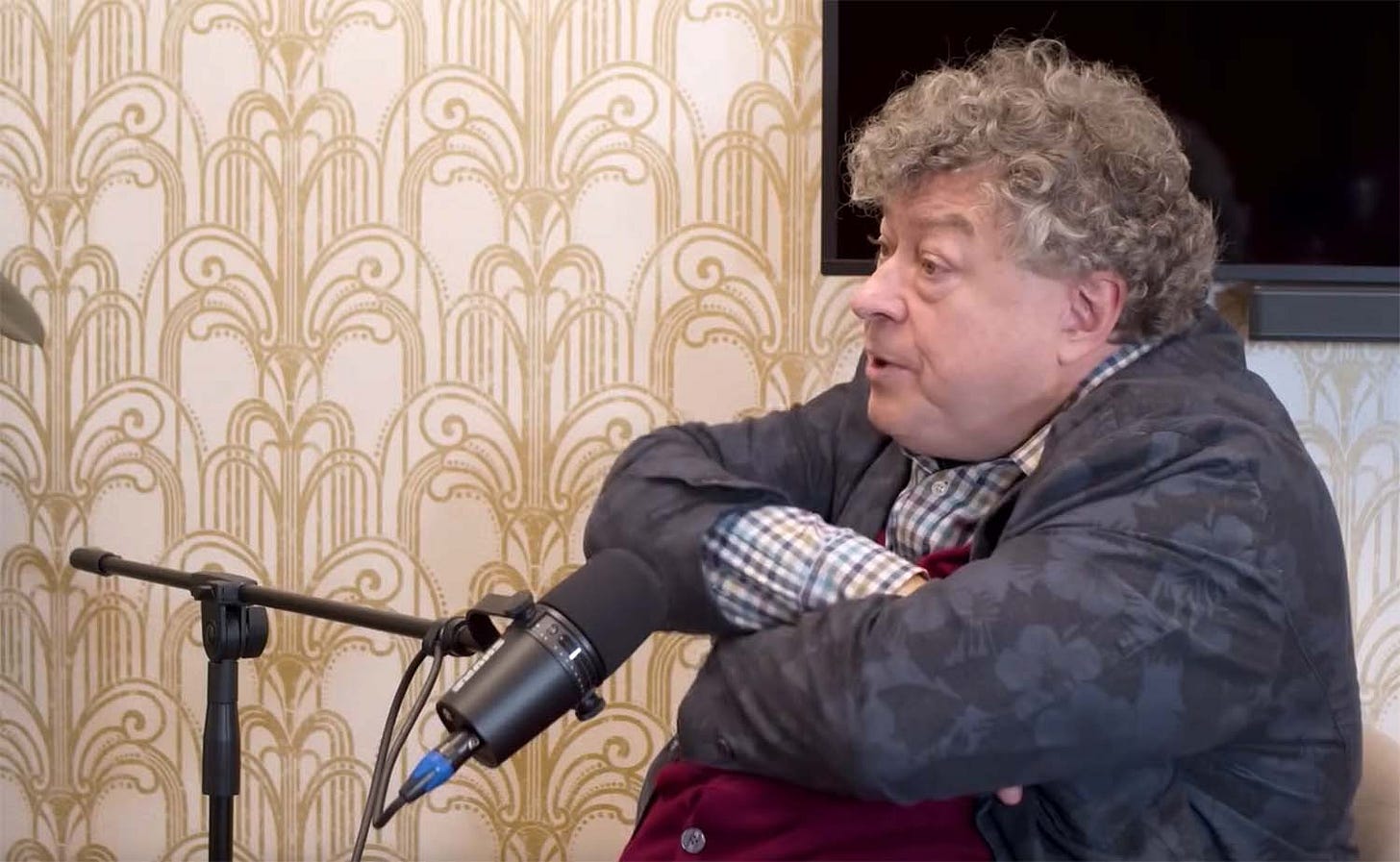It’s time to ditch nudge-thinking.
If you work in the advertising/creative industry, especially in the UK, you’ve probably heard of Rory Sutherland. He’s earned a reputation as something of a creative guru. A professional Quirky Brit who comes up with lateral ideas and pithy statements. Perhaps the David Ogilvy of his generation. Which is appropriate given that he’s Vice Chairman of Ogilvy UK.
Sutherland was recently on the Cleaning Up podcast to clarify his position on promoting fossil fuels (something his agency has no qualms doing).
As pointed out in this thoughtful post by my colleague and fellow Serious Person Jamie Inman, Sutherland is unable to give a straight answer, resorting mostly to deflection and lamentations of ‘virtue signalling,’ before melting into the form of a pop-psychology Jeremy Clarkson and casting doubt on the general veracity of climate science as a whole.
It’s an infuriating listen if you spend a lot of time thinking and talking about climate change, but to many it probably sounds reasonable. After all, can we really be sure of anything these days? Isn’t everything unpredictable? Why spend all this effort trying to change things, if change itself could be harder than what we’re trying avoid?

In Sutherland’s view, the people calling for radical change are dogmatic: we’ve been taken in by the climate cult and can no longer see the nuance, the uncertainty. In short, we’re naive, unserious, and not worth listening to. He asserts, dogmatically.
I understand dogma to be something that is repeated and reinforced in spite of the piling evidence to the contrary.
To call for ‘balanced debate’ when the science has long been established, to insist on working with polluters as ‘part of the solution’, to write off every extreme weather event as an outlier, and to throw doubt on established fact. This is dogma veiled as pragmatism.
You could even call it wishful thinking.
“Sutherland accuses others of dogmatic thinking while grasping tightly to his own dogma of uncertainty that gives him comfort in the face of reality.”
We’re all scared.
Underneath all the can-we-really-be-sures and the ‘balanced debates’ lies a deep-seated fear, and a wish to be told that everything’s going to be ok. Sutherland accuses others of dogmatic thinking while grasping tightly to his own dogma of uncertainty that gives him comfort in the face of reality. And that’s why his arguments resonate. They give people tools to self-soothe, to placate their own fears, and to find their own comfort in the idea of nuance, of uncertainty, of ‘both sides’.
Sutherland lives in uncertainty because that’s how the status-quo maintains itself. Instead of looking towards visionary, systemic change, the status-quo leans on behavioural science and the idea that small tweaks to ‘consumer behaviour’ can have wide-reaching impacts. That improving the wifi on trains is preferable to creating an actually functioning rail network. That consumer choice equates to social freedom and equality.
Perhaps it shouldn’t be surprising that a man who’s dedicated his career to finding new and innovative ways to sell more products is not really a ‘systems change’ kind of guy. But it’s still disappointing to realise that someone who is held up as a genius in the field of creativity turns out to be bought and paid for by fossil fuels. As Chomsky would put it, he may not be paid to say these things, but he’s certainly paid because he believes them.
Far from the incisive, innovative thinker he’s widely praised to be—and I had always assumed he was—Sutherland here is the embodiment of the status-quo staunchly digging its heels in and refusing progress, as it always does.
What’s the big idea?
We have to go beyond clever behavioural tricks and offer something bigger. Something coherent, tangible. The solutions are there, from renewable energy to circular production to devolution and degrowth. These ideas are up against huge vested interests, and they need creativity. Creative agencies have a duty to put their vast talents towards making sustainable lifestyles more understandable, engaging and desirable, before it’s too late to adopt them.
We have to realise that the future cannot be found in nudges, in nifty tweaks, or in Ogilvy’s behavioural science department (as paid for by fossil fuel contracts).
The future is, by definition, not the status quo. The agencies that transition from the clients of past—and start promoting the solutions of the future—are those that will enable the creative sector to survive and thrive.
Leave a Reply